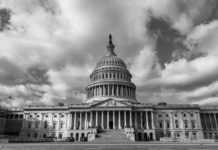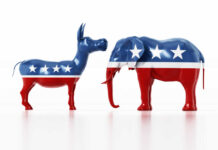
The United States economy grew at more than 5% in 2023’s third quarter, representing a critical moment for the Federal Reserve. While the topline number brings some good news for Americans, the statistic also makes it more likely that inflation will continue and that the Fed may have to raise interest rates further.
The Commerce Department revised up its initial estimate of the growth of the nation’s gross domestic product (GDP).
The initial figure was 4.9%, but this was increased to 5.2%. There were multiple factors that led to the change, including a revision regarding fixed investment and government spending.
67% of Americans say their income isn’t keeping up with inflation, and 42% say their standard of living is declining, per Empower.
— unusual_whales (@unusual_whales) November 29, 2023
Overall government spending increased by 5.5%, both above the rate of inflation and economic growth. Despite some positive news in the report, third-quarter consumer spending was revised down to 3.6% from 4.0%.
The higher GDP figure shows that the government and some businesses are spending more than in previous quarters, which is often a key driver of inflation.
The Federal Reserve’s efforts to tamp down inflation intended to slow consumer spending while also attempting to avoid a recession. While recession fears persist, the current report shows that more interest rate hikes may be needed to quell stubborn inflation.
Furthermore, several recent inflation reports showed that price increases were continuing at higher-than-expected rates. It also showed that inflation was occurring significantly above the 2% target set by the Federal Reserve.
A key member of the central bank indicated that rate hikes are still possible in the near term. Richmond Fed President Thomas Barkin said on the day of the GDP figures that should inflation continue to “flare back up, I think you want to have the option of doing more on rates.”
He added that there’s “no precision that anyone can point to at exactly what the level of rates that exactly handles inflation and exactly the way you want to handle it. So you’re constantly trying to adjust on the fly as you learn more about the economy.”










